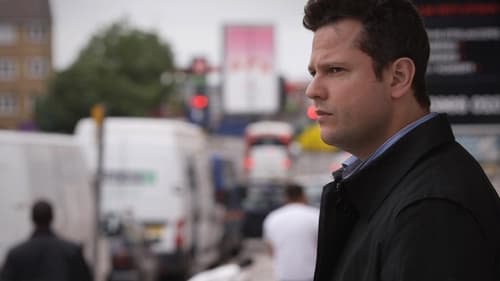
Director of Photography
During the early 1970s, hundreds of peasants in a remote region of El Salvador began to emulate the early Christians, working the land together and building communities based on solidarity. By the late 1970s, thousands of peasants in northern Morazan organized to resist National Guard repression which often involved torture and executions. In 1980s, the military engaged in scorched earth operations against their villages, inaugurating a 12-year civil war. The Word in the Woods tells their stories. The film's protagonists must reflect upon their struggles in the light of current reality.

Cinematography
The tragic true story of Jean Charles de Menezes, the innocent Brazilian shot dead by British police in 2005 at the height of the London terrorist alerts.

Cinematography
A young Spanish writer inherits a home in the Guatemalan rainforest, only to become wrapped up in a land war, touchy local politics... and murder.

Writer
Two paths cross on a descent into Guatemala's past: that of Mateo Pablo, a Maya survivor of one of many massacres committed by local government troops, and Daniel Hernández-Salazar, a concerned Guatemalan artist and photographer. Together they travel to a remote site in the highlands where the community of Petanac once stood. The bones found there by archaeologists tell a mute story of agony.

Director of Photography
Two paths cross on a descent into Guatemala's past: that of Mateo Pablo, a Maya survivor of one of many massacres committed by local government troops, and Daniel Hernández-Salazar, a concerned Guatemalan artist and photographer. Together they travel to a remote site in the highlands where the community of Petanac once stood. The bones found there by archaeologists tell a mute story of agony.

Director
Alejandro Cotto, a pioneer of Salvadoran cinema, celebrates his 63rd birthday in Suchitoto while the youth celebrate the end of the civil war. He speaks with Escalón about the struggles faced by Third World filmmakers, the horrors of war, the fate of his village, and the pursuit of his dreams.

Self
Alejandro Cotto, a pioneer of Salvadoran cinema, celebrates his 63rd birthday in Suchitoto while the youth celebrate the end of the civil war. He speaks with Escalón about the struggles faced by Third World filmmakers, the horrors of war, the fate of his village, and the pursuit of his dreams.

Director
La Zona Intertidal was made at a time when terrorist acts from both state and paramilitary were the order of the day in El Salvador and shaped the global perception of the country. Instead of the agitprop montages that characterized the political cinema of Latin America in the 1960s and ‘70s, this film is dominated by a feeling of deceptive calm: a beach, lapping waves, a man reading in a hammock, two men in conversation... The violence that breaks into these scenes is hinted at more than it is depicted. Only a closing text panel dedicating the film to the murdered teachers of El Salvador establishes a clear political context. LA ZONA INTERTIDAL was shown at the Short Film Festival Oberhausen in 1982 and awarded one of the main prizes by the International Jury. The festival program listed a “Grupo los Vagos” as the author of the film, a four-member collective that had begun working together in 1969 as the theater collective Taller de Los Vagos and later switched to the medium of film.







